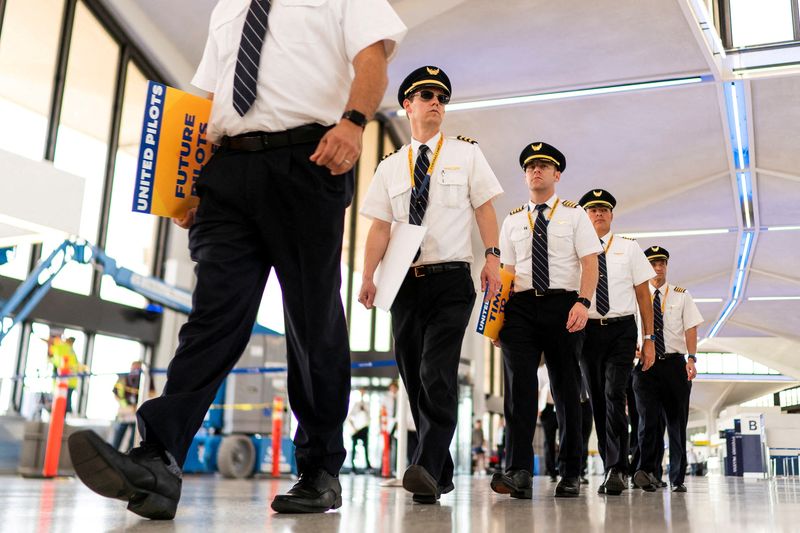By David Shepardson
WASHINGTON (Reuters) -The U.S. House of Representatives on Thursday voted to pass legislation that would raise the mandatory commercial pilot retirement age to 67 from 65 and make other aviation reforms, with the Senate now set to consider its own measure.
The vote in the Republican-led House was 351-69 to pass the bill that would reauthorize U.S. Federal Aviation Administration (FAA) aviation safety and infrastructure programs for the next five years.
The Air Line Pilots Association has said hiking the retirement age could cause airline scheduling and pilot training issues and require reopening pilot contracts. Current international rules would still prevent pilots older than 65 from flying in most countries outside the United States.
The Regional Airline Association supports the pilot age hike, saying it "allows retention of more experienced captains, who can in turn fly alongside and mentor new first officers, helping to stabilize attrition."
The White House said this week it opposed a House bill provision that would rescind a 2012 Transportation Department regulation requiring airlines to advertise full fares including government fees and taxes. The House measure also did not include a provision sought by President Joe Biden to compensate passengers for delays or set minimum airline seat sizes.
The House measure would bar airlines from charging fees to allow families to sit together on flights. The House opted to retain pilot training rules that were adopted after a 2009 fatal passenger airplane crash near Buffalo. The bill did not include language allowing additional round-trip flights at Washington Reagan National Airport as sought by Delta Air Lines (NYSE:DAL).
Airlines for America, an industry trade group, praised the House passage and said it "underscores the need to hire more air traffic controllers to ensure our airspace is adequately staffed."

The Democratic-led Senate Appropriations Committee unanimously approved funding for the FAA on Thursday. That measure would allow the agency to hire 1,800 additional controllers next year. The Senate Commerce Committee could take up the FAA reauthorization bill as early as next week.
The Senate bill has been held up by a dispute over whether to change pilot training requirements that were imposed after the February 2009 crash of Colgan Air Flight 3407 near Buffalo that killed 50 people, the last major U.S. passenger airline fatal crash.